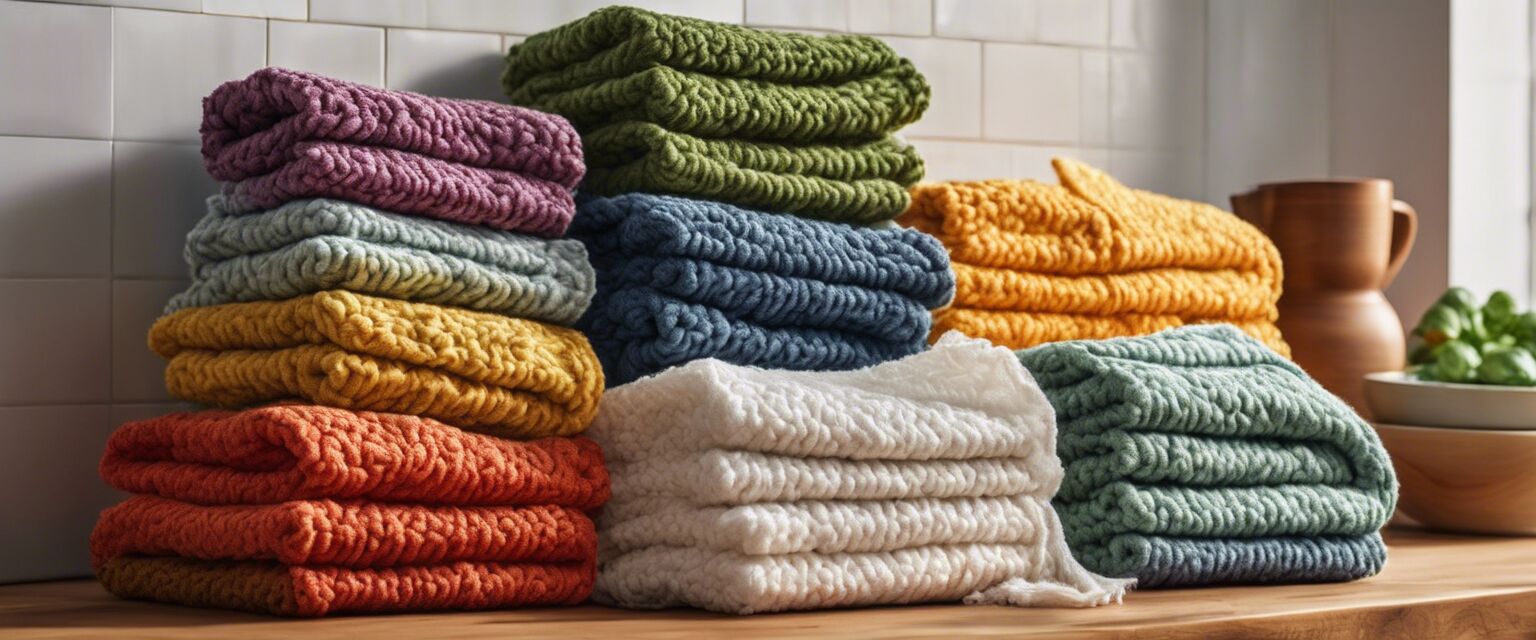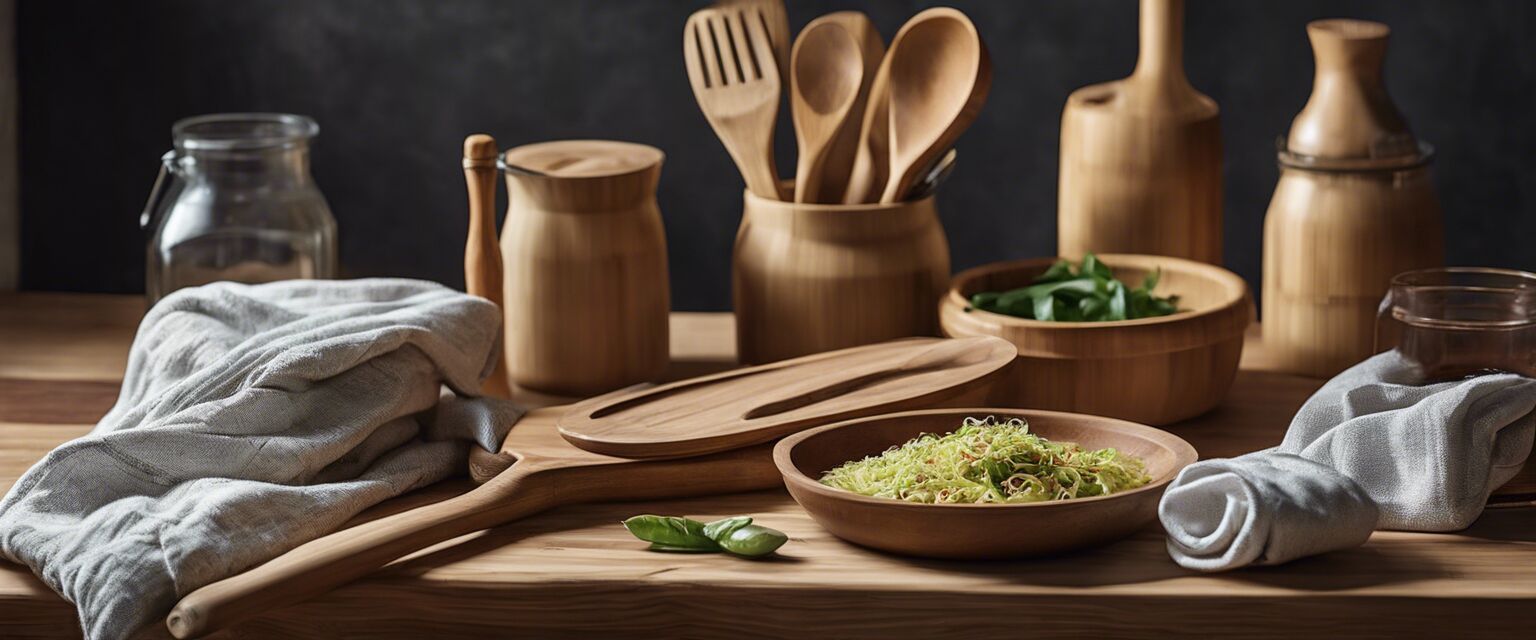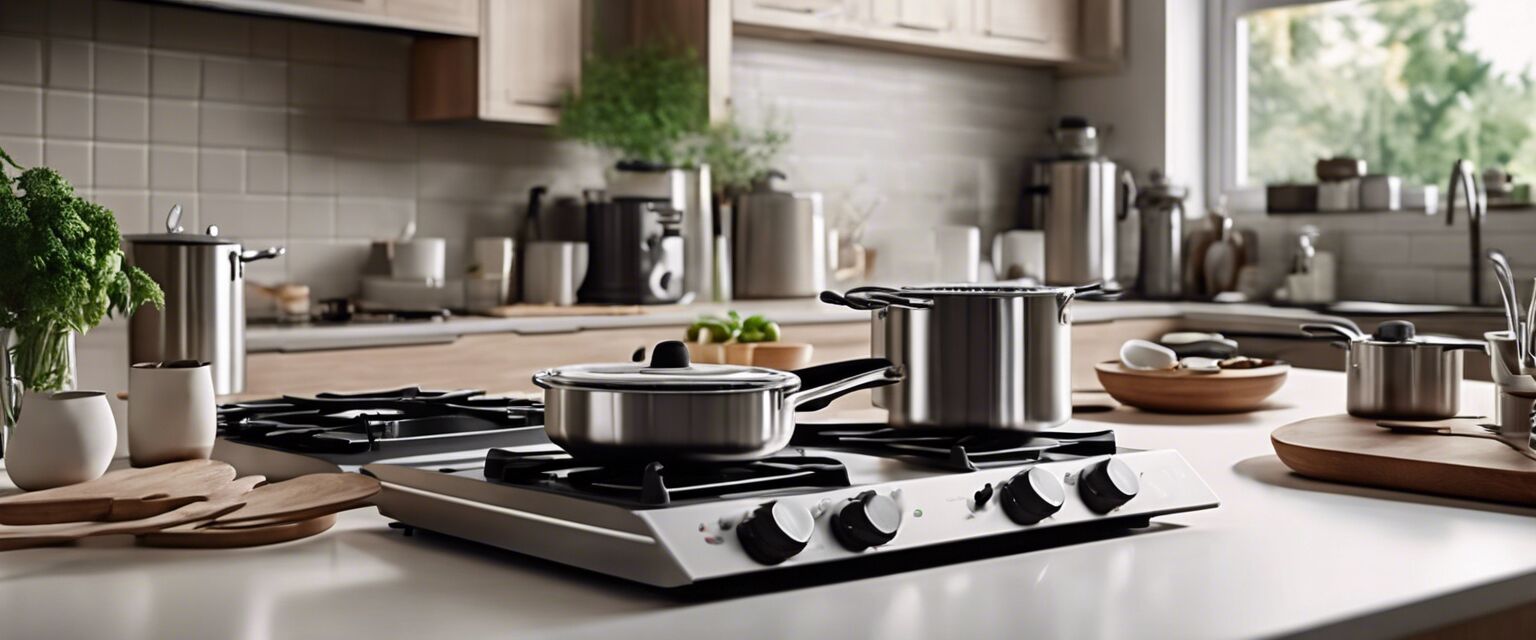
Organic Kitchen Textiles
Key Takeaways
- Organic kitchen textiles are made from sustainable materials like organic cotton and bamboo.
- These products are free from harmful chemicals and dyes, promoting a healthier home environment.
- Investing in organic kitchen textiles helps support eco-friendly practices and reduces your carbon footprint.
- Popular items include dishcloths, towels, and aprons that come in various designs and colors.
- Choosing the right textiles can enhance your kitchen's aesthetic while being functional and environmentally friendly.
Welcome to our comprehensive guide on organic kitchen textiles! If you're looking to make eco-friendly choices in your kitchen, you're in the right place. Organic textiles not only provide functionality but also add a touch of style to your culinary space. Let's delve into the benefits, types, and care tips for these sustainable products.
What are organic kitchen textiles?
Organic kitchen textiles refer to various kitchen-related fabric items made from organic materials, primarily organic cotton, which is grown without synthetic pesticides or fertilizers. These textiles can include:
- Dishcloths
- Kitchen towels
- Aprons
- Tablecloths
- Reusable napkins
Benefits of using organic kitchen textiles
Switching to organic kitchen textiles comes with numerous advantages:
| Benefit | Description |
|---|---|
| Eco-Friendly | Made from sustainable materials, reducing environmental impact. |
| Healthier Home | Free from harmful chemicals, making them safer for your family. |
| Durability | Organic textiles are often more durable and last longer than conventional options. |
| Better Aesthetic | Available in various designs, adding beauty to your kitchen. |
Types of organic kitchen textiles
Here are some common types of organic kitchen textiles you might consider:
1. Dishcloths
Organic dishcloths are essential for any kitchen. They are absorbent and can be washed multiple times, making them a sustainable choice.

2. Kitchen Towels
Kitchen towels made from organic materials are perfect for drying dishes and hands. Their natural fibers are gentle and effective.
3. Aprons
Eco-friendly aprons not only protect your clothes but also come in stylish designs that enhance your cooking experience.
4. Tablecloths
Organic tablecloths add elegance to your dining area while being sustainable.
5. Reusable Napkins
Switching to organic reusable napkins can significantly reduce waste and are perfect for any meal setting.
How to care for organic kitchen textiles
Proper care will extend the life of your organic kitchen textiles:
- Wash in cold water to prevent shrinkage and preserve colors.
- Use mild, eco-friendly detergents to avoid harmful chemicals.
- Air dry whenever possible to save energy.
- Avoid bleach and fabric softeners to maintain the integrity of the fibers.
Frequently asked questions
Are organic kitchen textiles worth the investment?
Yes! While they might be slightly more expensive than conventional options, their durability and eco-friendliness make them a wise long-term investment.
Can I find organic kitchen textiles in various colors and designs?
Absolutely! Organic kitchen textiles are available in many styles, allowing you to match them with your kitchen decor.
Where can I buy organic kitchen textiles?
You can explore our categories on bamboo kitchenware, compostable kitchen tools, and more for a variety of eco-friendly options.
Conclusion
Choosing organic kitchen textiles is a step towards a more sustainable lifestyle. Not only do they offer practical benefits, but they also contribute to a healthier home. Start exploring options today and make a positive impact on your kitchen and the environment!
Tips for beginners
- Start by replacing one or two conventional textiles with organic options.
- Look for certifications like GOTS (Global Organic Textile Standard) to ensure quality.
- Experiment with colors and patterns to find what suits your kitchen best.
Pros
- Eco-friendly materials
- Durable and long-lasting
- Healthier for you and your family
- Stylish and available in various designs
Cons
- Initially higher cost
- Limited availability in some regions
- May require special care











